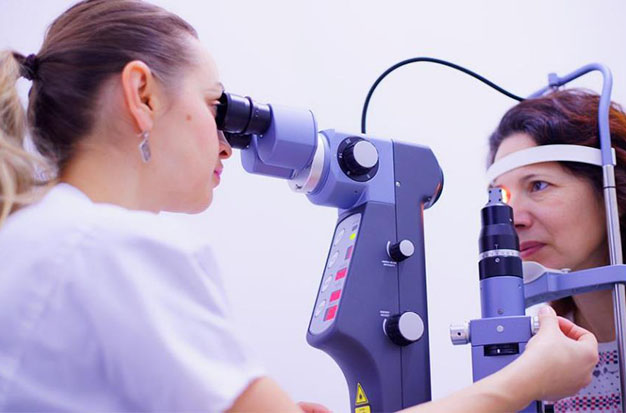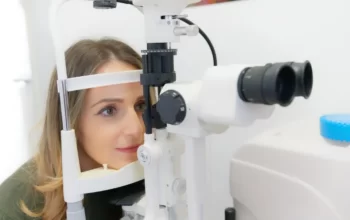
Yes, having surgery can be stressful. Naturally, when it comes to our eyes, we’re especially wary about being handled.
Many people are prone to discard cataract surgery before ever considering it since even the slightest contact with our eyes can cause us to feel considerable discomfort.
Is Cataract Surgery Painful?
In a short answer, NO.
Your consultant ophthalmic surgeon will walk you through the process and allay any fears before the procedure. To make sure the surgery is completely stress-free, you may also receive a sedative in addition to a local anesthetic to numb the region around your eyes.
Although you’ll be awake throughout surgery, most people forget the actual operation, which is typically simple and takes approximately eight minutes for each eye. The majority of the time, the surgery is completely painless. Your surgeon will monitor your comfort at various points.
Will I Feel Anything At All During Cataract Surgery?
You shouldn’t suffer any pain during cataract surgery because of the anesthetic used, but you might sense some light sensations. You could occasionally experience light pressure around the eye area as well as water streaming across the surface of the eye. Additionally, it is likely that you will see bright lights while having your cataracts removed; this is completely normal and causes no concern.
Naturally, your surgeon is present the entire time, so if you experience any worry or anxiety, let us know right away. We’ll take immediate action to allay your worries and make sure the treatment is as painless as possible.
Should I Expect Pain After Cataract Surgery?
Again, in a short answer, NO.
Although it is uncommon to actually feel pain after cataract surgery, it is typical to feel some temporary discomfort. Some patients say they feel scratchy.
In the extremely rare case where patients have severe discomfort, redness, or decreased vision after cataract surgery. In some situations, we provide patients with a plastic shield to keep their eyes safe after cataract surgery. The day following the procedure, this can typically be removed. In the days following your surgery, you should see a significant improvement.
It is important to keep in mind that you won’t be able to drive right after your cataract procedure, so you might want to bring a friend or family member to the hospital with you or make other arrangements for someone to pick you up afterward.
What Happens During Cataract Surgery?
Throughout the treatment, a unique device keeps your eyes open. This device is not harmful.
In order to correctly remove your old lens and insert your intraocular lens, your eyes are held open. These actions take place quickly and painlessly.
Your doctor will keep checking on you throughout the process to see how you’re doing. While having cataract surgery, even though you are conscious, you might not recall anything.
This is typical. Because of the drugs you get during cataract surgery, your memory may be cloudy.

What Happens After Cataract Surgery?
Your drugs’ effects will start to fade after surgery. Your eyes could feel uncomfortable at this time. Most patients use over-the-counter pain relievers to deal with this temporary discomfort.
Your eye doctor will go over what to expect and your post-op instructions. It shouldn’t hurt after cataract surgery to recover. If you experience excruciating pain, problems may be present.
Common symptoms after cataract surgery can include:
- itchy or irritated eyes
- watery eyes
- blurry or cloudy vision
- feeling like there is something in your eyes
- light sensitivity
These are all transient symptoms that disappear within a few days. Most patients can see well enough to return to work and drive by the end of the first week after surgery.
In the event that you are in excruciating pain, please call your doctor right away. The earlier you treat issues, the easier they are to treat!
You must go to follow-up appointments with your cataract surgeon to ensure that your eyes are recovering. This aids in the early detection of any issues or infections.
What Are The Benefits Of Cataract Surgery?
Most patients who undergo cataract surgery successfully regain their vision after the treatment. Your ability to see at night will significantly improve, and colors will appear sharper than they did before cataracts masked their distinct hues. The ability to read, watch TV, use a computer, sew, cook, perform yard work, and enjoy the natural beauty around you every day are among the best advantages of cataract surgery for most individuals.
In addition to lowering the chance of falls and hip fractures, doctors now think that having cataract surgery may even lower the likelihood that older patients would experience cognitive decline.
What Are The Disadvantages Of Cataract Surgery?
It is crucial to understand that complications from cataract surgery are rare and that the treatment is one of the most popular and effective ones carried out in modern medicine. 3 million Americans have cataract surgery each year, with a success rate of 98 percent or higher, according to the American Society of Cataract and Refractive Surgery (ASCRS). Additionally, a study of over 200,000 Medicare beneficiaries who underwent cataract surgery between 1994 and 2006 found that 99.5% of patients experienced no severe postoperative complications, and the risk of such complications has decreased as a result of improvements in surgical equipment and methods. However, there are potential dangers and consequences associated with cataract surgery, such as:
- Posterior capsule opacity (PCO)
- Intraocular lens dislocation
- Eye inflammation
- Eye infection or bleeding
- Light sensitivity
- Photopsia (perceived flashes of light)
- Macular edema (swelling of the central retina)
- Retinal detachment
- Glaucoma
- Loss of vision
- Ptosis (droopy eyelid)
- Ocular hypertension (elevated eye pressure)
If you have another eye condition or a major medical condition, your risk for cataract surgery is increased. Very rarely, eye damage from other illnesses like glaucoma or macular degeneration causes cataract surgery to fail to restore vision. Before deciding to have cataract surgery, it may be advantageous to assess and address any underlying eye issues.
The majority of problems from cataract surgery are minimal and can be effectively managed with medication or subsequent surgery. Before having surgery, you should talk to your eye doctor about any risks or potential problems.
Conclusion
You shouldn’t avoid having cataract surgery due to the possibility of pain. The process itself will be completely painless in the majority of cases, and any post-operative discomfort will be much exceeded by the benefits of cataract surgery. Many of our patients claim that it was only after undergoing surgery that they realized how severely their eyesight had deteriorated; many of our patients also attribute cataract surgery with giving them a new lease on life.



